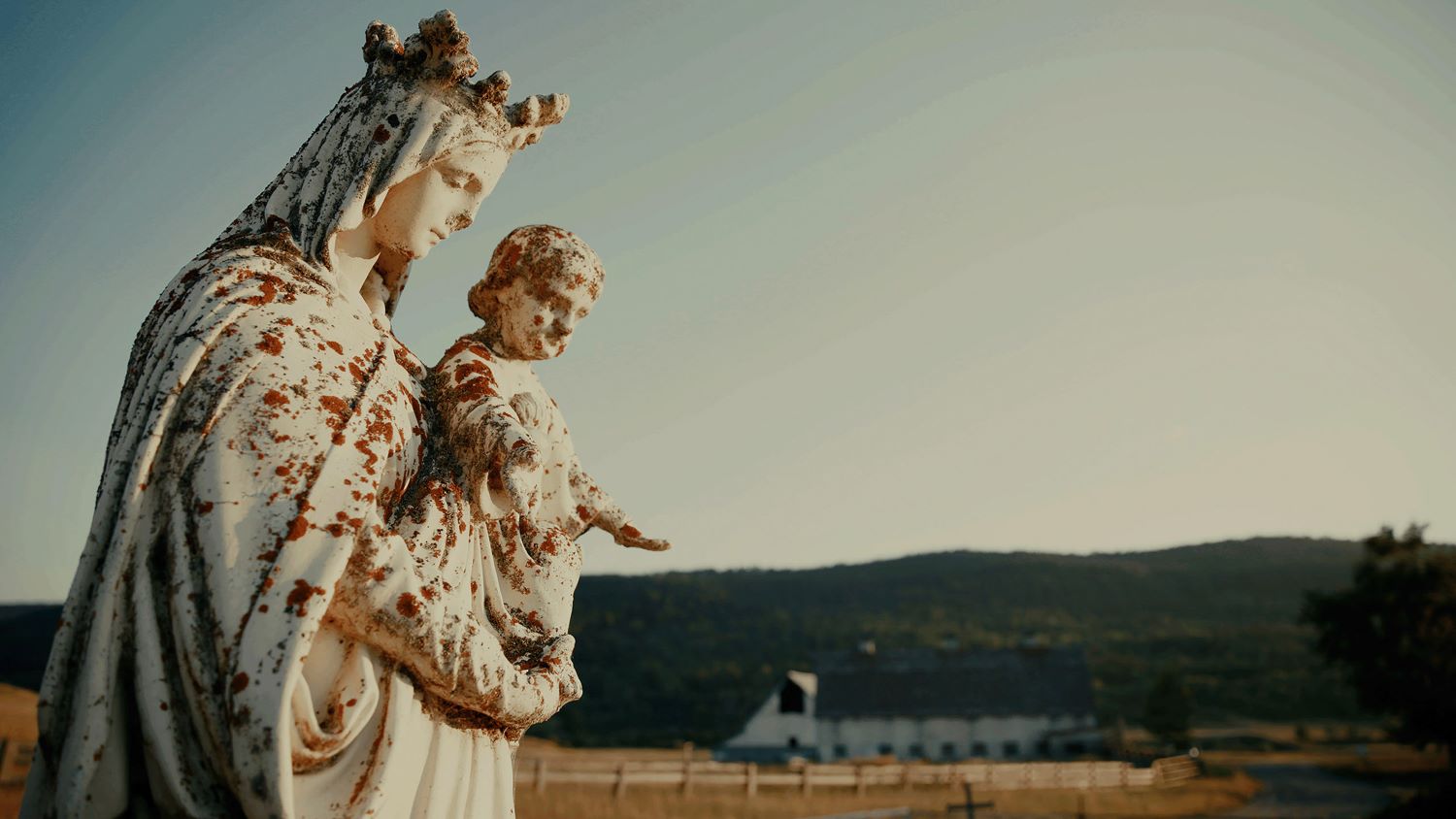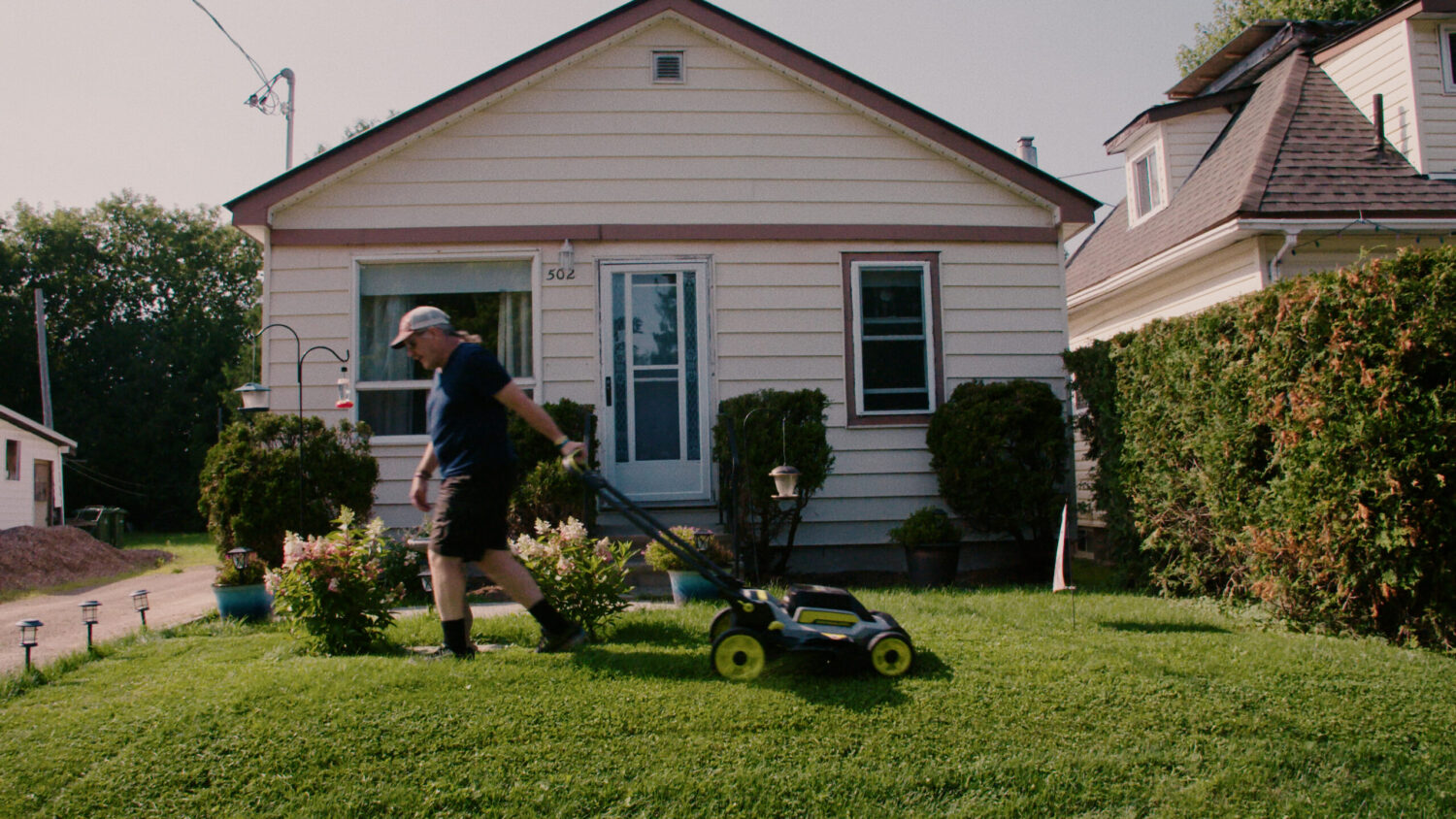Sugarcane
(USA/Canada, 107 min.)
Dir. Julian Brave NoiseCat and Emily Kassie
Programme: U.S. Documentary Competition (World Premiere)
There are several scenes in Julian Brave NoiseCat and Emily Kassie’s Sugarcane that feel like they could take place in a police procedural with a board of photos accompanied by name cards and red string connecting the various participants in a criminal conspiracy. This is the stuff of cop shows like The Wire or crime films like Zodiac. However, the photos in Sugarcane are of priests charged with the education of entire generations of young Indigenous people. The red lines mark the decades where abuse and even murder took place under the auspices of civilizing those thought “savage.” This is a true story of mass murder and more, one that doesn’t need the de-nationalization function of fiction to be jarring. It’s a tale that is finally becoming central to conversations about truth and justice that are beginning to take place in Canada and abroad.
For those paying attention in Canada, the horror unpacked here should not come as a surprise, but I’m guessing that for many people in the U.S. where the film had its Sundance premiere, this will be completely shocking stuff. From the film’s title cards, we’re informed of the late 19th century introduction of a residential school system where Indigenous children were taken away from their families and communities and placed into boarding schools. There, their languages and cultural traditions were systematically stripped in favour of assimilation into the dominant cultures under the auspices of missionary-like fervour mixing with governmentally approved paternalism to solve the so-called “Indian Problem.”
What makes this film all the more effective is how it unpacks these dark historical events through the experiences of those living with the effects of these policies to this day. There’s a long and stark tradition of treating Indigenous stories as ones from the past, encouraging the notion that these cultures and people are the purview of anthropological or archaeological interest alone. When we meet the people of the Williams Lake First Nation, especially those of the Sugarcane reservation, we are meeting individuals who themselves have parts of their histories that have been erased. They share present circumstances that are shaped in ways both conscious and unconscious by the ghastly behaviour of leaders charged with the care of young people.
Sugarcane leads us gently through the stories of these individuals, many of whom remain entirely reluctant to speak to their truths even decades later. For a circumstance where there are no easy answers and plenty of understandable causes for rage, we see people struggling to come to terms with their own relationship to both the past and those with whom they connect. Fathers must reconcile with the fact that their own behaviour mirrors the pain that was caused to them in their childhood with a legacy of abandonment, substance abuse, and more traumas causing cyclical issues within the community. Suicides are rife for those that were in the school system, but also for children of victims after inheriting such generational traumas.
Yet despite the onslaught of attacks culturally, psychologically, and physically, there’s deep joy expressed throughout these communities. We see the young Chief Rick Gilbert eloquently speak for his community while raising a new generation to be made aware when things do not go well for others. We see dancing and joy, love and affection, small moments where partners help people pack up for trips or simply have discussions about how close to cut the grass. The fact that these moments take place in an area of gravestones, or a voyage off to see answers from the heart of the Catholic institution itself, illustrates subtly yet forcefully how all of these elements are constant. The past forever intrudes in the present. The tenacity of these survivors is evident as they move forward and find joy.
Some viewers May want Sugarcane to provide answers from the participants that we have the honour of getting to know, but that kind of simplistic, perhaps cathartic, notion is reserved for fictional procedurals. In so much of this film, we witness people who are unable to speak, unable to fully come to terms with what has transpired, unable to accept evidence about the causes of their pain or even unable to recognize whose blood runs through their veins. This film, like the very notion of truth and reconciliation itself, is part of a process. It is through this elegantly constructed and gently unfolding film that we witness not only the way this process unfolds, but the very mechanism by which both this community and those outside of it can begin to unpack all that has brought us to this point.
By eschewing grand moments that might have made for a more dramatic confrontation, Sugarcane tells the story in a fashion that the individuals themselves we meet reflect. This paradoxical divide between strength from the past and deep reluctance to dive into the darkness is hardly unique to these particular communities. However, the film itself benefits from maintaining a similar level of hybridized effect, one where we scan on the surface for what lies beneath, but do not yet dig up what lays below. For some, there remains time to systematise and codify what has occurred; for others, there are meetings where elders have the strength after all these years to finally tell their stories.
When one of the subjects of the film goes to the Vatican, he meets with a senior member of the clergy representing the subset of the church that ran the institution he was born into. The two men engage in conversation, and then silently look at each other, humbled and burdened by a past that only now is being recognized and confronted. Apologies are given, as they are from the pontiff, but what’s missing is the direct action to begin the process of making things right.
This film is, in some fundamental ways, part of that process of action. That’s true even if places the burden on the community itself to do the heavy lifting by bringing attention to what has transpired. As we see co-director NoiseCat encourage his own father to come to terms with his past, they discuss the same with his grandmother who is even more reluctant to speak. We see through these gestures how even the simple act of remembering has been stifled under institutionally insidious notions such as guilt and remorse. By exposing these truths without sensationalizing them, by telling the history of these communities without resorting to cliché or generic tropes, Sugarcane deftly and profoundly provides a means by which the greater process of understanding is to be accomplished.
There’s a sweetness to Sugarcane that should not be under appreciated, as beneath the tears and terrors of the past there is a story of survival that’s so seldom articulated as gracefully. We meet some truly remarkable individuals and, through them, become guests into this community and given access to moments of emotional intimacy that are extremely compelling. It is through these gentle yet effective means that audiences can go beyond the rhetoric and statistics to witness the lives and thoughts of the individuals behind the headlines. For many, this story will be a shock, but even for those who have paid attention over the years, there’s still an immense amount that can be learned from the stories showcased here. The result is a deeply impactful work that provides uses a specific gaze at this one community to offer a universal look at the struggles yet to come, the actions still called for, and the repercussions of the past that continue to cloud the present. The film also looks to future to see that justice is done, that changes are made, and that stories are no longer locked away from people who lived to tell the tales.














